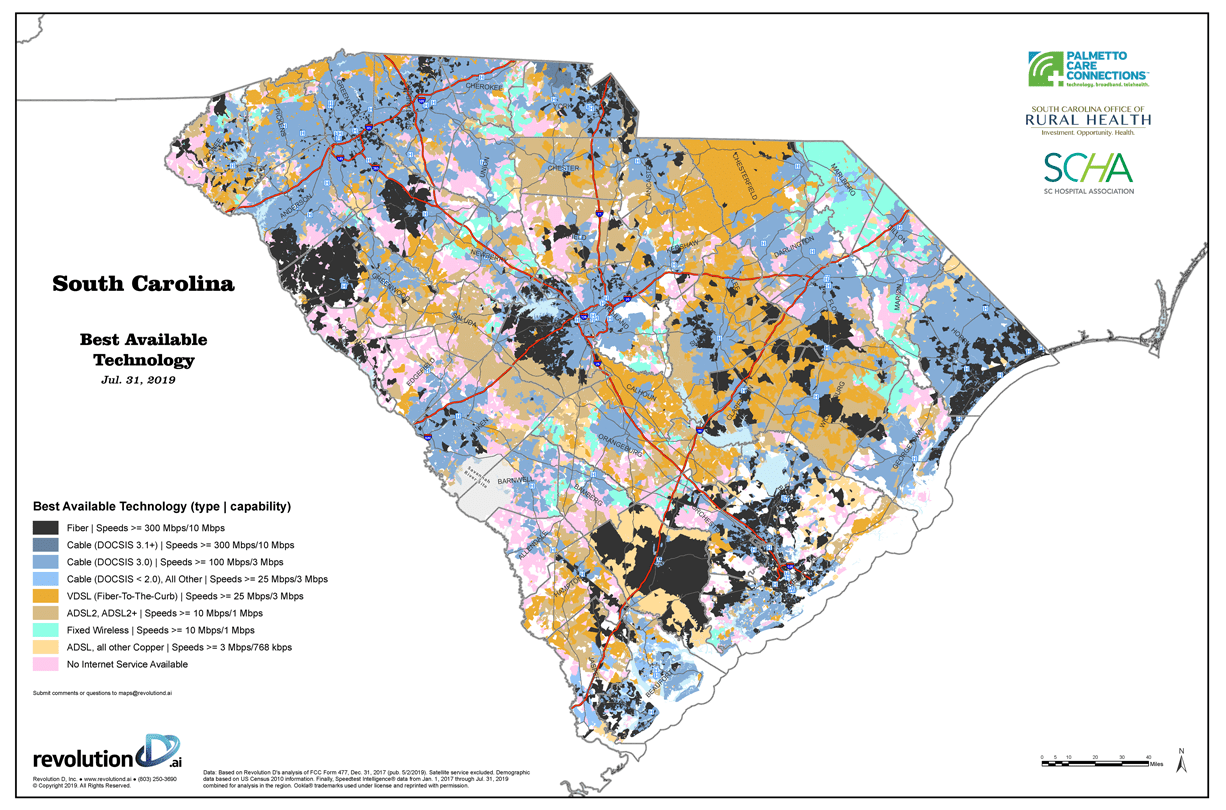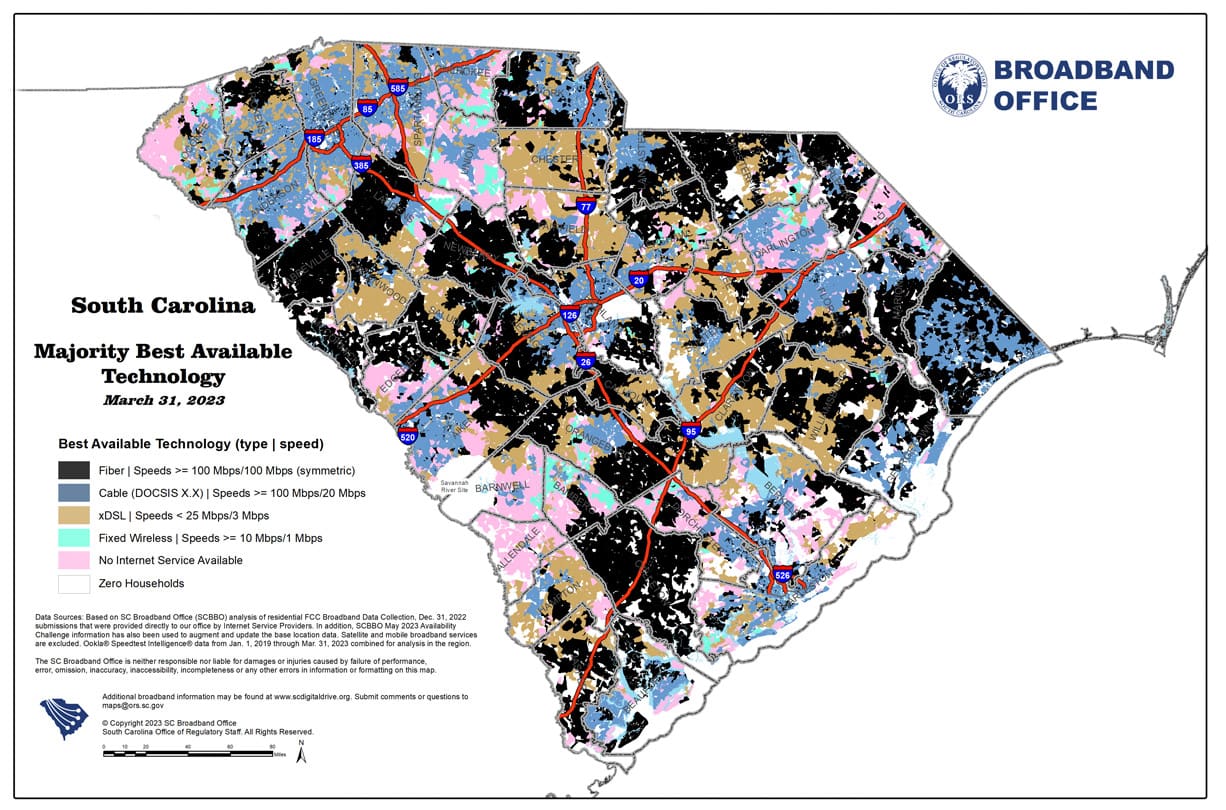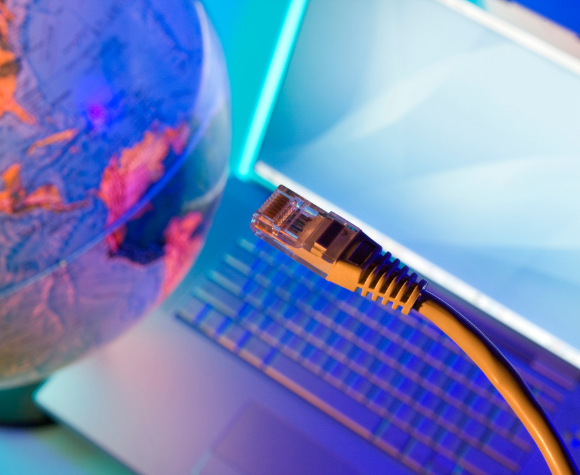The Three A’s of Broadband
 What is Broadband?
What is Broadband?
Since 2020, there’s been a lot of discussion about, and funding for, broadband. But what exactly is broadband? Simply put, it’s just another word for high-speed internet.
The Federal Communications Commission’s (FCC) current minimum speed threshold for broadband is 25 Megabytes per second (Mbps) download (how fast you can download something from the internet) / 3 Mbps upload (how fast something you upload something to the internet). However, this threshold may soon increase to 100 Mbps/20 Mbps. Broadband can be delivered over both fiber and cable/coax technologies. With starting speeds of 500 Mbps/500 Mbps on its state-of-the-art fiber network, HTC’s internet service goes above and beyond the minimum definition for broadband.
At HTC, when we talk about broadband, we focus on the three A’s of broadband: Access, Adoption and Affordability.
Broadband Access
Broadband access has been the driving factor behinds billions of dollars of broadband infrastructure funding since 2020 and the onset of the pandemic. When we assess broadband access, we’re looking for whether a location has access to the physical internet infrastructure and service. Essentially, we’re trying to answer the question of if the homeowner can sign up for high-speed internet service without any additional cost for construction. If the answer is yes, then that location has access to broadband. If the answer is no, then they do not have access to broadband and the location in question should be eligible for broadband infrastructure funding.
Before the pandemic, more than 99 percent of Horry County households already had access to broadband. Since then, HTC crews have been working to reach the remaining few unserved households in throughout the county. HTC has also completed $28 million worth of broadband infrastructure grant projects since 2020, which allowed us to provide internet to more than 5,000 residents in Georgetown and Marion counties who didn’t have broadband access at the start of the pandemic.
Because of the hard work of local providers like HTC, combined with the South Carolina legislature’s proactive approach to addressing the broadband access challenge during the pandemic, South Carolina is now a nationwide leader in broadband access.
 South Carolina Broadband Access Before the Pandemic
South Carolina Broadband Access Before the Pandemic
 South Carolina Broadband Access in 2023
South Carolina Broadband Access in 2023
Broadband Adoption
Many people confuse adoption for access. While broadband access determines whether a household has physical access to internet, broadband adoption is whether or not a household has signed up for the service available to them. Some households choose not to sign up for internet. The reasons vary from not wanting it, not understanding the full value of it and potential of the service and some simply may not be able to afford it.
When the pandemic happened, HTC knew access wouldn’t be an issue for most of the student households in Horry County, but wanted to address the adoption issue as quickly as possible. Horry County Schools (HCS) conducted a phone survey for all student families asking if students had internet service at their primary residence. HTC confirmed that 843 primary residences within our service area did not have internet. HCS provided instructions to these families on how to get a free internet connection through HTC during the pandemic, and we connected 675 residences within seven business days.
Today, HTC is working to increase adoption rates by educating community members on the full benefits of high-speed internet, including but not limited to: telehealth; online learning; career development; and more. We are also partnering with Horry-Georgetown Technical College to deliver classes on the subject and we expect millions of grant dollars will be available in the coming years to address this need state-wide.
Broadband Affordability
The third A that is often discussed with broadband is affordability, which is a household’s ability to pay for the internet service available to them. One way that HTC is supporting our members is through the Affordable Connectivity Program, or ACP. ACP is a federal government program that provides eligible households with a discount on internet service. It provides a discount of up to $30 per month on internet bills for households that meet income eligibility requirements, including participation in a free or reduced school lunch program.
HTC also supports its members through capital credits. Since 1979, HTC has refunded $174 million to members in our local communities and this year, the HTC Board of Directors approved a 2023 Capital Credit refund of $7.5 million. This refund represents a portion of the 2006 and 2021 allocations.
Internet is no longer a luxury, it’s a critical utility. And when you compare your internet bill to your other utility bills, HTC’s prices are a great value, especially when you consider the speeds we deliver without data caps!

 What is Broadband?
What is Broadband?